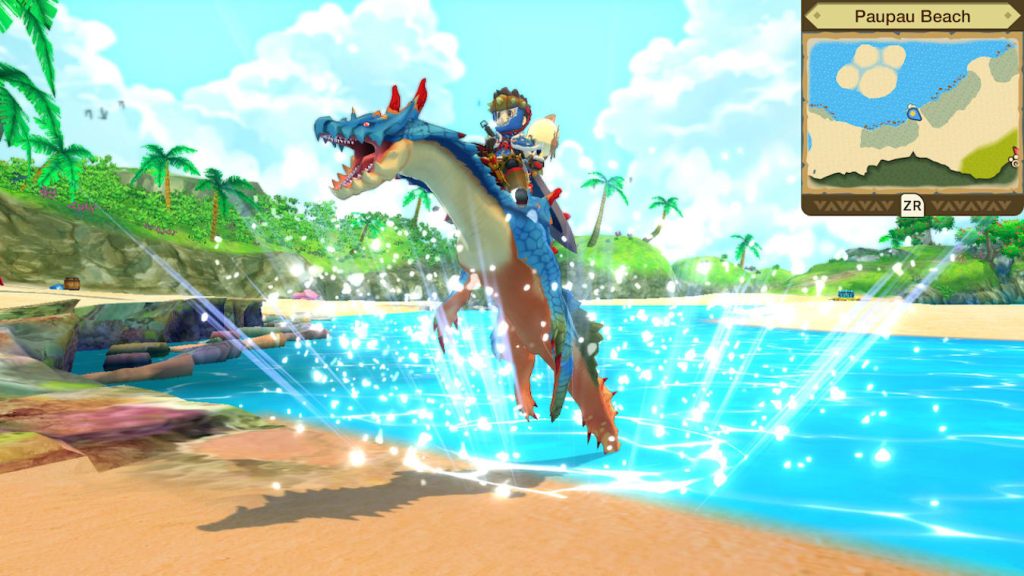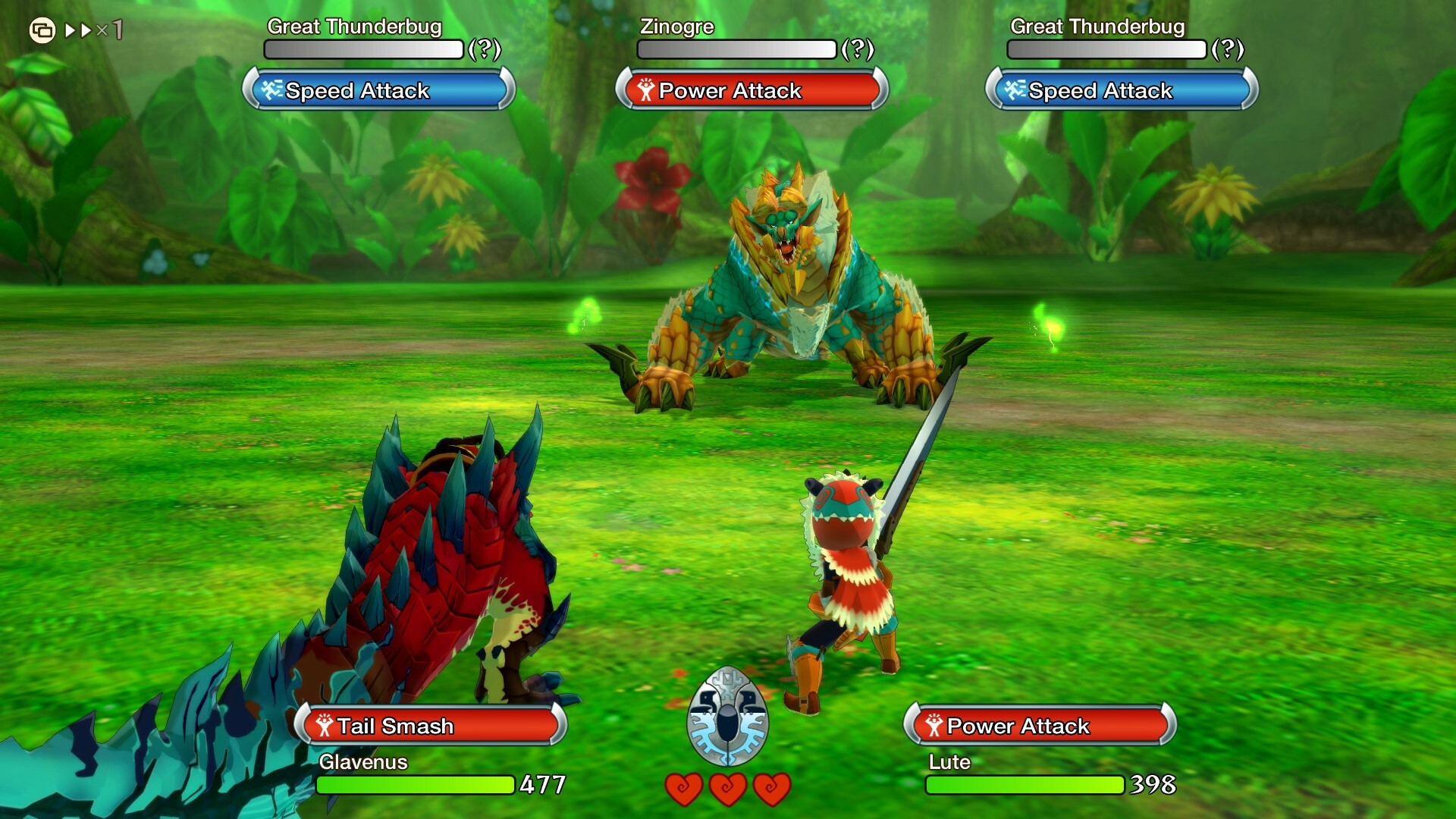Monster Hunter Stories (PS4) Review – Ride On
The original Monster Hunter Stories didn’t really release under the best circumstances to ensure success. It launched for the Nintendo 3DS back in 2017 (2016 in Japan), at a time when the handheld was very much in the final stages of its life. It also came out at a time when Monster Hunter, though still a very successful franchise in its own right (especially in Japan) hadn’t become the record-breaking, global commercial juggernaut that Monster Hunter World would turn it into upon its release in 2018. All of which is to say that you wouldn’t be blamed for having completely missed out on the original Monster Hunter Stories.
Worry not, however, because Capcom is bringing the JRPG spinoff back. The company has remastered the game, given it a bit of a technical glow-up, added some nifty features, and released it for (almost) all modern platforms (sorry, Xbox), giving everyone the perfect opportunity to see just what it was that the game brought to the table with its Pokemon-inspired traditional turn-based JRPG offerings. For the most part, a lot of Monster Hunter Stories’ charm has made it through in the remaster completely untouched, which, combined with some legitimately engaging core mechanics, make for a fun RPG adventure. At the same time, however, while playing the game, it’s also at times painfully clear that what you’re playing is ultimately a 3DS game from nearly a decade ago.
[embedded content]
“A lot of Monster Hunter Stories’ charm has made it through in the remaster completely untouched, which, combined with some legitimately engaging core mechanics, make for a fun RPG adventure. At the same time, however, while playing the game, it’s also at times painfully clear that what you’re playing is ultimately a 3DS game from nearly a decade ago.”
In Monster Hunter Stories, you play as a young child living in a remote, isolated village amidst a community of Riders, who’re basically Pokemon Trainers in the Monster Hunter universe. That means, unlike the mainline games’ monster killing hunters, the Riders’ way of life instead revolves around taming, rearing, and battling alongside Monsters, who they refer to as Monsties. It’s because of this way of life, in fact, that Riders choose to live in isolation, away from the rest of the world. However, when they and the outside world alike are threatened by the arrival of the Black Blight – a sickness that turns monsters into out-of-control, rampaging nightmares – it falls to you and your friends to head out into the world and find a way to stop the Blight’s spread.
Monster Hunter Stories is decidedly more focused on story than the series’ mainline games, though it’s worth noting that tonally, the game is very much targeted at younger audiences. The can be be genuinely heartwarming and charming a surprising amount of times, and though the story that it tells is ultimately a pretty predictable and straightforward one, it’s also one that deserves credit for how effectively it manages to keep hold of your attention. What helps, of course, is the addition of voice acting in this remastered release, with the majority of the performances ranging from serviceable at worst to legitimately good at best. There are some characters that are a bit annoyingly written – like a village elder who, for whatever reason, only ever speaks in rhymes – but by and large, the remaster’s voice overs do a good job of bringing the game’s characters and story to life.
Visually, however, Monster Hunter Stories isn’t much of a looker. It should go without saying that you shouldn’t be going in with enormously high expectations at any rate – this was originally a 3DS game, after all – but even so, the game undoubtedly shows its age in how flat and muddy it can look at times. Personally, I’m not much of a fan of the whole chibi aesthetic either – I much prefer the look and art style of Monster Hunter Stories 2 – which means, visually speaking, I can’t say I’m a fan of how the game has aged, even with the touched up graphics in this enhanced release.

“The remaster’s voice overs do a good job of bringing the game’s characters and story to life.”
On a gameplay front, the game does similarly show its age, though admittedly, it’s still quite a bit of fun at its core, thanks to some legitimately well thought-out and enjoyable mechanics and systems, especially if you’re a fan of traditional JRPGs. The star of the show is the combat, which carves out a very distinct identity for itself in the turn-based space. At its core is a rock-paper-scizzors system- any time you and an enemy are targeting each other, both of you will attack each other with either a power, speed, or technical attack, with power being stronger against technical, technical against speed, and speed against power, with those matchups deciding the winner of each head-to-head. That simple system forms the heart and soul of the game’s battle system, with other wrinkles thrown on top in the form of double attacks, different weapon types, Kinship attacks between you and your Monstie companions, and what have you.
A combat system can make or break a JRPG, and Monster Hunter Stories, thankfully, has a solid one. It’s a shame that Capcom didn’t take the opportunity to add some of Monster Hunter Stories 2’s improvements into the remaster – like being able to break specific monster parts, for instance – but even in its original form, it works quite well. Monster Hunter Stories has you battling a lot of enemies, and though it never really gets challenging in a way that may stand out in memory, the battle system is always fun enough to hold your attention, for the most part. As you grow more powerful, unlock new skills, expand and improve your roster of Monsties, and add more and better weapons to your arsenal, the combat only ever gets better- it also helps, of course, that as you progress further, you also start taking on larger and more formidable foes, including many that Monster Hunter fans will loving locking horns with in a turn-based game.
Outside of combat, Monster Hunter Stories is pretty standard JRPG fare. There are large, open-ended hub maps to ride around in, randomly generated monster dens to explore, subquests to track down, and more, though none of it ever really stands out. From a design perspective, Monster Hunter Stories shows its age quite a bit, with exploration feeling quite limited, and even basic moment-to-moment movement feeling awfully stilted and clunky almost all the time. On top of that, side activities can often be horribly dull- some are certainly fun enough in their own right, but most are painfully rote and unambitious. Even monster dens quickly get repetitive. Though the thrill of finding a rare egg never quite goes away, it’s hard not to be let down by how simplistic and boring most of the dens are in design.
“A combat system can make or break a JRPG, and Monster Hunter Stories, thankfully, has a solid one.”
Monster Hunter Stories can’t quite hide its age, which, of course, is also down to the fact that as a remaster, this isn’t a particularly significant one. In its enhanced form, Capcom’s charming, simplistic JRPG does bring a handful of improvements and additions in the form of improved visuals, newly added voice acting, and even a Museum mode to check out art and music, but this is still ultimately a near-decade-old 3DS game. Is it still fun? It absolutely is. It’s fun and charming and legitimately heartwarming in its own right. It is, however, also quite a limited and straightforward game, so just keep that in mind if and when you decide to dive into it. Fans of traditional JRPGs will certainly find plenty of enjoyment here, even if the game admittedly does get outdone in so many ways by its successor (which is also now available on PlayStation, incidentally).
The PlayStation 4 version of this game was reviewed on the PlayStation 5 via backward compatibility.



Comments are closed.